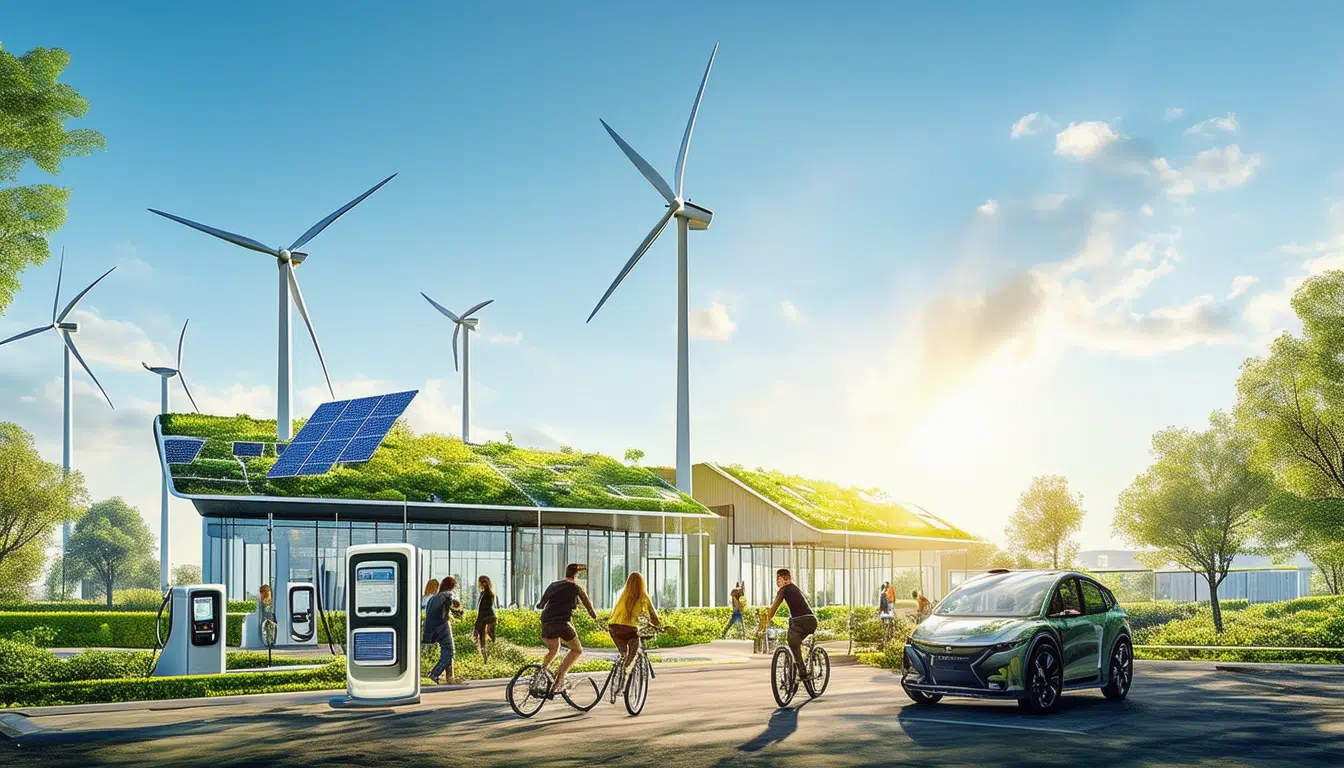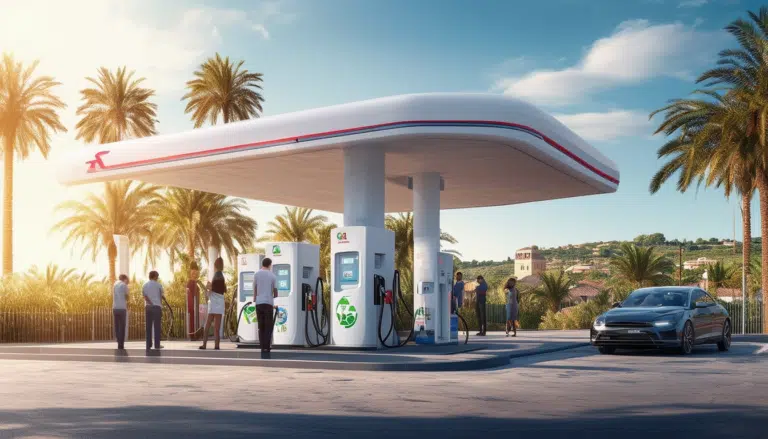Inversions in sustainable infrastructure and their effect on fuel expenditure

Sustainable infrastructure investments are presented as a strategic solution to address the growing concern over fuel expenditure and greenhouse gas emissions. The implementation of more efficient transportation systems, as well as the adoption of renewable technologies, not only reduces weight and consumption but also promotes more sustainable mobility. Furthermore, the transition to the use of alternative fuels, such as hydrogen, can enhance these investments, generating a positive impact on the economy and environmental quality. In this context, it is essential to analyze how these strategies can transform the transportation landscape and contribute to the conservation of biodiversity.
Sustainable infrastructure investments have become a global priority aimed at mitigating the impact of climate change and promoting economic development. This article explores how these investments not only contribute to environmental care but also have a significant effect on reducing fuel expenditure, promoting a more efficient and cleaner future in transportation.
The link between sustainable infrastructure and transportation
Proper infrastructure is essential for sustainable transportation. Investments in roads, bridges, and public transportation systems result in a decrease in excessive use of fossil fuels. For example, when effective public transport routes are implemented, citizens tend to choose these means over private vehicles, which reduces the demand for fuel for individual cars.
Innovations in sustainable fuels
New technologies, such as hydrogen and other sustainable fuels, are revolutionizing the transportation sector. By investing in infrastructure that supports these fuels, the door is opened for more sustainable vehicles to integrate into the market, thereby reducing the greenhouse gas emissions associated with traditional transportation. Investments in hydrogen charging stations and electric vehicles can minimize conventional fuel expenditure.
Economic benefits of green infrastructure
According to estimates from The New Climate Economy, investments of approximately 90 trillion dollars are needed for sustainable infrastructure until 2030. This immense investment is not only crucial for sustainability but also allows for improved energy efficiency in transportation systems, which directly impacts a reduction in operating costs. Developing countries aligning their policies around these investments can significantly save on their overall fuel expenditure.
Sustainable logistics and its impact on climate change
Investments in sustainable logistics are not only beneficial for the environment but can also be more cost-effective in the long run. By adopting more efficient practices, such as the use of electric vehicles and route optimization, fuel consumption is reduced, and hence, inefficient expenditure. This is a key opportunity to mitigate climate change by reducing emissions in transportation.
Challenges and opportunities in the transition to clean energy
Despite the clear benefits of investing in sustainable infrastructure, the obstacles can be significant. The lack of funding and resistance to change are some of the main challenges. However, governmental initiatives promoting the transition to cleaner energies are emerging, as well as the reduction of fuel expenditure through incentive policies.
Conclusions on the importance of sustainable infrastructure
The development of sustainable infrastructures is imperative not only to face environmental challenges but also to optimize resource use and reduce fuel expenditure. By promoting innovative technologies and smarter logistical practices, cities can not only improve their efficiency but also offer a more resilient and sustainable future. To explore more about the future of automotive ecology, visit this resource.
Finally, the role of renewable energies is essential. Promoting innovation in the sector, as indicated in various initiatives, aligns with the new era of sustainability that seeks to tackle climate change. For more related information, you can visit: Tesla makes its grand entrance in Colombia and Geek geopolitics.
Sustainable infrastructure investments play a crucial role in transforming the transportation sector and reducing fuel expenditure. This strategy presents an integrative solution to mitigate environmental impact and optimize the use of alternative energies. The need for a more efficient and environmentally friendly transportation system becomes increasingly evident in a world facing serious climate challenges.
Green infrastructures not only help to decrease greenhouse gas emissions but also enable more effective resource use. The implementation of clean technologies in transportation, such as hydrogen and electric vehicles, is designed to reduce excess weight and dependence on fossil fuels. This energy transition is essential to reduce fuel consumption and, therefore, the associated costs.
Moreover, the path towards a more sustainable future requires a strong commitment to investments. It is estimated that around 90 trillion dollars are needed worldwide to build sustainable infrastructures before 2030. This investment is not only necessary for the modernization of cities but also acts as an economic development engine that benefits communities by creating jobs and improving quality of life.
Initiatives for sustainable mobility, such as promoting public transportation and the use of electric vehicles, offer more economical and efficient options for citizens. In this way, by integrating innovative technologies and promoting changes in urban planning, a significant reduction in fuel expenditure can be achieved, benefiting both the environment and the economy as a whole.






